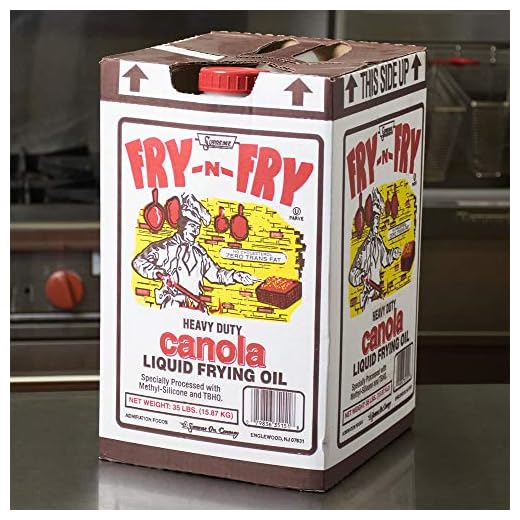





People are becoming increasingly aware of the environmental impact of their daily choices, including the use and disposal of cooking oil. The question arises: is cooking oil biodegradable?
Biodegradability is the ability of a substance to break down naturally and be consumed by microorganisms, leaving no harmful residue behind. In the case of cooking oil, the answer depends on the type of oil and how it is disposed of.
Many cooking oils, such as vegetable oil, olive oil, and canola oil, are considered biodegradable. These oils are derived from natural sources and can be broken down by bacteria and other microorganisms found in the environment. When these oils are disposed of in the proper manner, such as through composting or recycling programs, they can be easily broken down and reused.
However, it is important to note that not all cooking oils are biodegradable. Some oils, such as petroleum-based oils and synthetic oils, are not easily broken down by natural processes. These oils can pose a threat to the environment if not disposed of properly. It is recommended to check the label or consult with local waste management authorities to determine the proper disposal method for different types of cooking oils.
In conclusion, many common cooking oils are biodegradable and can be disposed of in an environmentally-friendly manner. However, it is essential to be aware of the type of oil being used and to follow proper disposal guidelines to minimize negative impacts on the environment.
Introduction
When it comes to cooking oil, one question that often arises is whether it is biodegradable or not. Biodegradability refers to the ability of a substance to be broken down naturally by bacteria or other living organisms, therefore reducing its impact on the environment. In the case of cooking oil, its biodegradability can have significant implications for both human health and the planet.
Biodegradability of Cooking Oil
Cooking oil is generally considered to be biodegradable. Most cooking oils are derived from plant sources, such as vegetable, olive, or canola oils, which are naturally biodegradable substances. When these oils are discarded or leak into the environment, they can break down over time with the help of microorganisms, such as bacteria and fungi, that are present in soil, water, and sediments.
However, it is important to note that the biodegradability of cooking oil can vary depending on factors such as its composition and the conditions in which it is disposed. For example, oils that have been highly processed or hydrogenated may be less biodegradable compared to their natural counterparts. Additionally, if cooking oil is improperly disposed of, such as being poured down drains or discarded in large quantities, it can cause environmental issues, such as clogged pipes and water pollution.
Environmental Impacts
When cooking oil is not properly disposed of or managed, it can have significant negative impacts on the environment. Improper disposal methods, such as pouring oil down drains or throwing it in the trash, can lead to clogged pipes and sewers. This can result in costly repairs and infrastructure damage for municipalities.
In addition, when cooking oil enters water bodies, such as rivers, lakes, or oceans, it can form a slick on the water surface. This can prevent the exchange of oxygen between the air and water, leading to reduced oxygen levels in the water. This decrease in oxygen can harm aquatic life, including fish and plants, as well as disrupt the entire ecosystem.
Proper Disposal of Cooking Oil
To minimize the environmental impact of cooking oil, it is important to dispose of it properly. One of the best ways to do this is by recycling used cooking oil. Many municipalities and recycling centers have collection programs specifically for used cooking oil, which can then be processed into biofuels or other useful products.
If recycling options are not available, cooking oil can also be absorbed using absorbent materials, such as cat litter or coffee grounds, before being disposed of in the regular trash. This helps to contain the oil and prevent it from leaking out of trash bags or bins.
Conclusion
In conclusion, cooking oil is generally biodegradable, but its biodegradability can depend on various factors. To minimize the environmental impact of cooking oil, it is crucial to dispose of it properly. Recycling used cooking oil or using absorbent materials before disposal are effective methods to ensure that the oil does not harm the environment. By taking these small steps, we can contribute to a greener and more sustainable future.
What is Biodegradability
Biodegradability is the ability of a substance to be broken down and decomposed by living organisms, such as bacteria, fungi, and other microorganisms. When a substance is biodegradable, it can be naturally transformed into harmless substances, such as water, carbon dioxide, and biomass, through the action of these organisms and the environment.
Biodegradability is an important characteristic for many products, as it determines their impact on the environment after they are discarded or used. Biodegradable materials break down much faster and have a lower environmental impact compared to non-biodegradable materials.
There are two types of biodegradation: aerobic and anaerobic. Aerobic biodegradation occurs in the presence of oxygen, while anaerobic biodegradation occurs in the absence of oxygen. The speed and efficiency of biodegradation are influenced by various factors, such as temperature, moisture, pH levels, and the availability of nutrients.
Biodegradability is a key consideration in waste management and pollution control efforts. Biodegradable substances can help reduce the amount of waste in landfills and minimize pollution caused by non-degradable materials. Many industries and companies strive to develop and use biodegradable products as part of their sustainability initiatives.
- Advantages of biodegradable materials:
- Reduced environmental impact.
- Less waste accumulation.
- Biodegradable products are often made from renewable resources.
- Promote sustainability and eco-friendly practices.
- Disadvantages of biodegradable materials:
- Some biodegradable materials require specific conditions to biodegrade efficiently.
- Not all biodegradable materials are suitable for all applications.
- Producing biodegradable materials may require more resources and energy compared to non-biodegradable alternatives.
In conclusion, biodegradability plays a significant role in environmental protection and sustainable practices. It is important to consider the biodegradable properties of materials when choosing products and promoting eco-friendly behaviors.
Types of Cooking Oil
Cooking oil is an essential ingredient in any kitchen, used for a variety of culinary purposes. There are numerous types of cooking oils available, each with its own unique flavor profile and cooking properties. Here are a few popular types of cooking oil:
Olive Oil
Olive oil is a staple in Mediterranean cuisine and is known for its distinct flavor and health benefits. It is derived from olives and comes in different varieties, including extra virgin, virgin, and regular olive oil. Olive oil is versatile and can be used for sautéing, roasting, and dressing salads.
Canola Oil
Canola oil is a popular choice for cooking due to its mild flavor and high smoke point. It is derived from the seeds of the canola plant and is low in saturated fat, making it a healthier option. Canola oil is suitable for frying, baking, and grilling.
Coconut Oil
Coconut oil is widely used in Asian and tropical cuisines and has gained popularity in recent years. It has a rich, nutty flavor and a high smoke point, making it ideal for high-heat cooking methods. Coconut oil is often used in stir-fries, curries, and baking recipes.
These are just a few examples of the many types of cooking oil available. Other popular options include vegetable oil, sunflower oil, and avocado oil. When choosing a cooking oil, consider the flavor profile, smoke point, and health benefits to ensure it suits your culinary needs.
| Type of Oil | Smoke Point | Flavor Profile |
|---|---|---|
| Olive Oil | Medium-High | Rich and fruity |
| Canola Oil | Medium-High | Mild |
| Coconut Oil | High | Rich and nutty |
Impact of Non-Biodegradable Cooking Oil
Non-biodegradable cooking oil can have significant negative impacts on the environment if not disposed of properly. Here are some of the key issues associated with the improper disposal of non-biodegradable cooking oil:
1. Water Pollution
When non-biodegradable cooking oil is poured down the drain or into bodies of water, it can lead to severe water pollution. The oil forms a thick layer on the water surface, blocking sunlight and reducing oxygen levels, which can have harmful effects on aquatic life.
2. Soil Contamination
Improper disposal of non-biodegradable cooking oil can also lead to soil contamination. When the oil is dumped on the ground or disposed of in landfills, it can seep into the soil and contaminate it. This can negatively impact the growth of plants and other organisms that rely on healthy soil.
Furthermore, non-biodegradable cooking oil can take several years to break down. This means that even if it is accidentally spilled or leaked, it can remain in the environment for a long time, causing ongoing pollution.
3. Damage to Sewer Systems
Non-biodegradable cooking oil can also cause damage to sewer systems. When poured down the drain, the oil can accumulate and solidify, leading to blockages and clogs. This can result in costly repairs and maintenance for the sewer infrastructure.
It is important to note that the impact of non-biodegradable cooking oil can be mitigated through proper disposal methods. Recycling used cooking oil or disposing of it at designated collection points ensures that it can be processed and reused for various purposes, such as the production of biodiesel.
In conclusion, non-biodegradable cooking oil can have detrimental effects on the environment if not disposed of properly. It is crucial for individuals and businesses to understand the potential harm caused by improper disposal and take appropriate measures to minimize their impact.
Q&A
What is cooking oil made from?
Cooking oil is made from various plant sources such as seeds, nuts, and fruits.
Is cooking oil biodegradable?
Yes, cooking oil is biodegradable. It will naturally break down over time when exposed to environmental conditions.
How long does it take for cooking oil to biodegrade?
The time it takes for cooking oil to biodegrade can vary depending on various factors such as temperature, oxygen availability, and presence of microorganisms. On average, it can take several months to a few years.
Are there any negative effects of cooking oil on the environment?
Improper disposal of cooking oil can have negative effects on the environment. When poured down the drain or thrown in the trash, it can clog pipes, contaminate water sources, and harm wildlife. It is important to dispose of cooking oil properly by recycling or reusing it.








